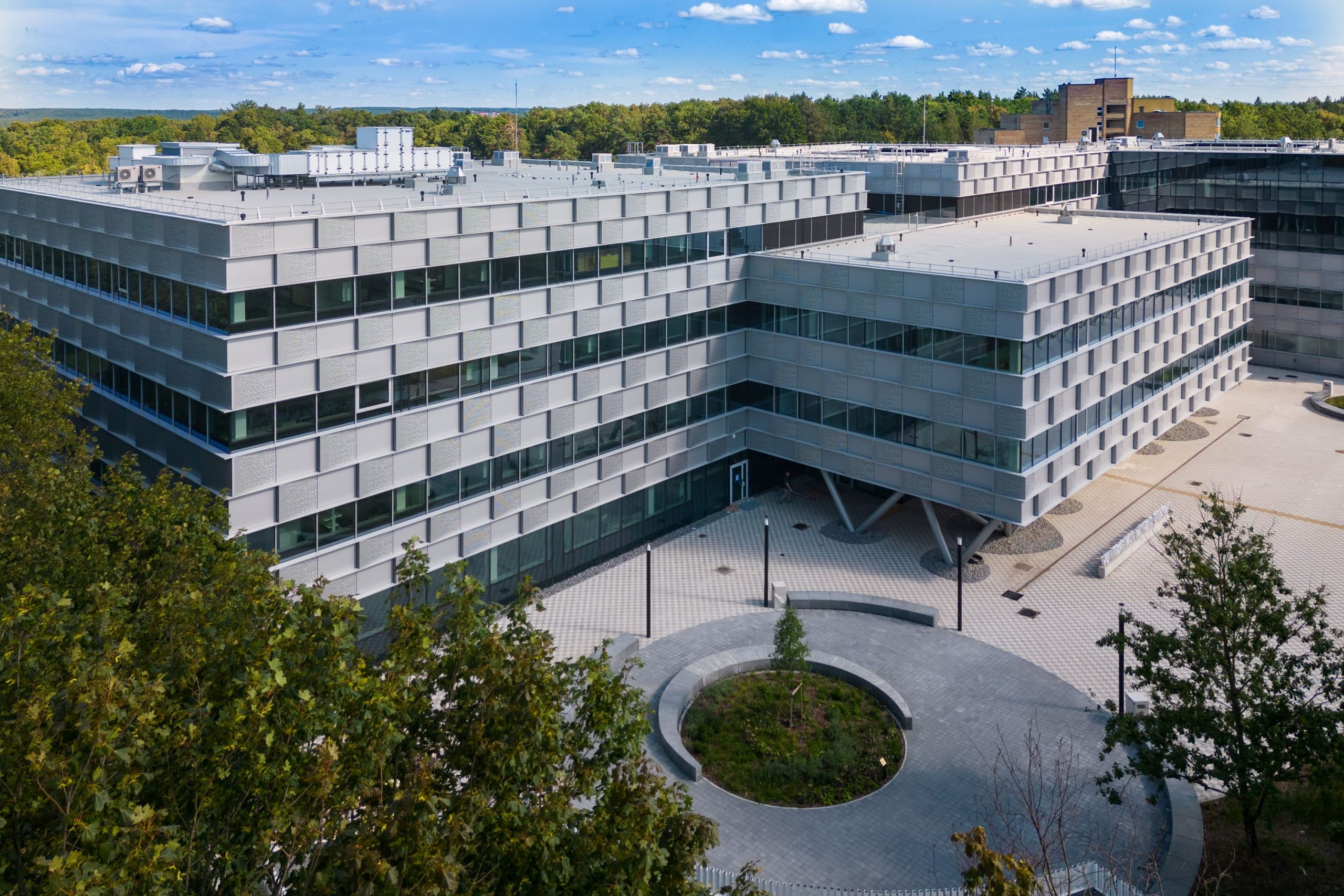 Vilnius University Faculty of Medicine Medical Science Centre / UAB „Eika“ photo
Vilnius University Faculty of Medicine Medical Science Centre / UAB „Eika“ photo
On 3 October 2024, the Faculty of Medicine at Vilnius University opened its Medical Science Centre. It represents the largest investment in medical science infrastructure in Lithuania. The main goal of the centre is to translate fundamental scientific discoveries into practical solutions for medical applications. It consists of six buildings and almost 900 separate premises, where the research infrastructure has been developed to the highest standards.
The faculty’s new Medical Science Centre houses unique laboratories and research centres. It will use a wide range of tools – from human cell cultivation and modern molecular research to digital technologies – to develop translational, personalised and digital medicine. Scientific discoveries made in the Science Centre’s laboratories will be applied directly to the treatment of patients, and the results achieved, will then be brought back to the laboratory for further research and development. This reflects the essence of translational research, where scientific discoveries are translated into practical treatment solutions that improve people’s health.
The centre will host a range of genetic, biomarker research, neuroscience, dental, cancer research and other laboratories, as well as strengthen the fight against cancer with artificial intelligence tools developed and patented by the centre’s research scientists.
The complex will also host the country’s only biobank (the Population and Rare Diseases Biobank), set up to collect biological samples from across the Lithuanian population. The Biobank will store consenting participants’ biological samples, such as blood, saliva, skin, urine, biopsies, etc., as well as other health information. The information will be collected, catalogued and stored in biobank databases, and researchers will be able to use it for specific research or purposes, subject to the consent of the individual and defined ethical and data security requirements. The biobank will contribute to a better understanding of contemporary Lithuanian health and the determinants of various diseases.
The Centre for Applied Neuroscience will carry out sleep studies in dedicated environments, isolated from environmental noise, to record various changes in the body’s activity during sleep. It will also use state-of-the-art equipment to study the brains of live subjects to understand early changes in brain function during the development of various diseases. The dental research laboratories will use a range of imaging, 3D printing and digital tools to carry out applied research to improve prosthodontic and endodontic technologies.
The new centre also houses the country’s first Biosafety Level 3 laboratory, which will allow research into highly contagious and dangerous agents. It will also host the country’s first Palaeogenetics Laboratory, where the infrastructure will allow for the in-depth study of ancient human DNA from bones, micro-organisms or even plants. The various genetic research laboratories will include population genetics, human genomics and regulomics, as well as basic research on DNA and RNA regulation, which will provide a better understanding of not only the determinants of health, but also the mechanisms underlying diseases. The biomarker research laboratory will also support the development of the more accurate diagnosis or prognosis of diseases and enable the study of cellular and molecular markers related to disease mechanisms.
The Medical Science Centre is also home to the Centre for Digital Medicine. This provides an important innovation platform for integrating advanced technologies and medical science into the healthcare system. Teams of researchers at the Faculty of Medicine are already using artificial intelligence and machine learning to develop algorithms and new digital tools that can help detect cancerous tissue more accurately or interpret patients’ important medical data. The technologies concentrated in the Digital Medicine Centre will allow the analysis of vast amounts of digital images of pathology, that are crucially informative.
A video clip presenting the construction of the Medical Science Centre (we recommend choosing a high quality viewing mode: Quality 1080pHD):
A photo gallery of the opening event of the Medical Science Centre on 3 October can be found here.
Read an article about the Centre's opening here.
---
